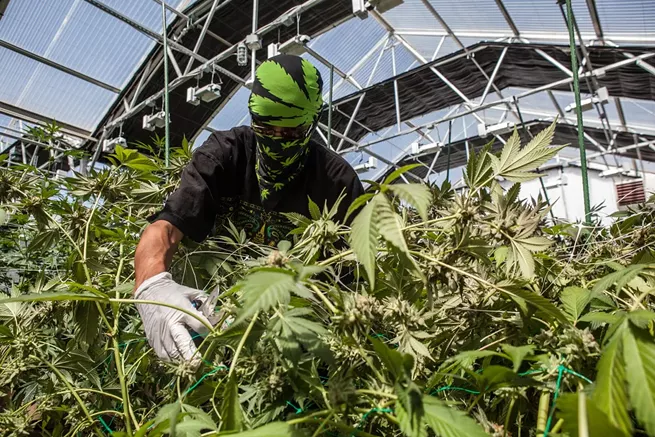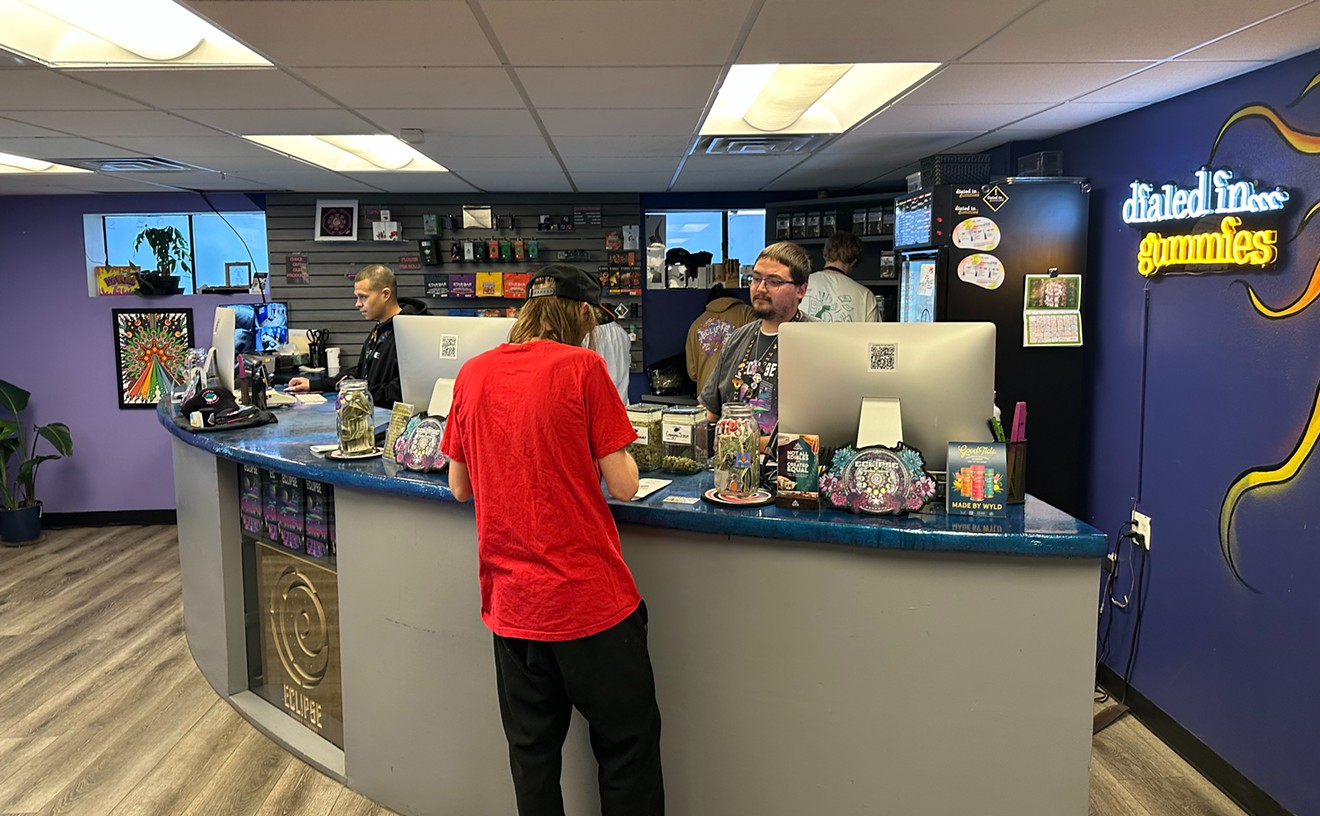Dear Stoner: Now that it's been six months since the coronavirus pandemic came to Colorado, do we know how COVID-19 has affected the weed industry? Is it taking a step back?
Corso
Dear Corso: For the most part, the legal cannabis industry (and probably the illegal one, too) has stayed healthy, if not busier than usual, during the COVID-19 pandemic — to the point where some dispensary owners laugh at the idea of needing access to federal economic relief funding. That could be sour grapes, of course, since Congress did not extend the stimulus packages to marijuana businesses, as cannabis is still federally illegal. But the cannabis industry also has reason to be confident: Over the past few months, people have been spending more cash than ever at Colorado dispensaries.
After a short, bumpy beginning to business in March and April layered with confusion over regulatory changes to limit human interaction, cannabis users turned out in droves at Colorado dispensaries during the summer months. According to state Department of Revenue figures, dispensaries sold just under $199 million worth of marijuana products in June, the highest monthly total since recreational sales were legalized in 2014. The previous record was set the month before, with dispensaries ringing up $192.2 million in sales in May. Such high sales numbers have even led to reports of shortages much earlier than in years past; typically, stores prepare for the fall outdoor harvest in August and September, but this year customers have complained about lighter shelves since July, with vendors scrambling to fill orders.
The high sales figures come despite the rule changes the cannabis industry has seen since the pandemic began. In March, Governor Jared Polis issued executive orders allowing medical marijuana appointments through telemedicine, as well as online ordering and curbside pick-up options at dispensaries, and those orders have been extended several times over. Mandatory at first, to-go ordering is now optional for dispensaries, but masks and limited capacity are still enforced inside stores, and customers can't smell or touch bud jars anymore.
Outside of maybe online ordering, most of these industry changes won't last past the pandemic, but pot shops have proven both recession- and pandemic-proof, and communities across Colroado are taking notice as they become hungry for more tax revenue. Broomfield, Littleton and Lakewood will all vote on whether to allow recreational dispensaries in their respective towns this November, while Denver, Aurora, Dillon and Trinidad are all considering approving new forms of cannabis delivery or hospitality businesses.
As times get tighter, people get higher.
Send questions to [email protected].
[
{
"name": "Air - MediumRectangle - Inline Content - Mobile Display Size",
"component": "12017618",
"insertPoint": "2",
"requiredCountToDisplay": "2"
},{
"name": "Editor Picks",
"component": "17242653",
"insertPoint": "4",
"requiredCountToDisplay": "1"
},{
"name": "Inline Links",
"component": "18838239",
"insertPoint": "8th",
"startingPoint": 8,
"requiredCountToDisplay": "7",
"maxInsertions": 25
},{
"name": "Air - MediumRectangle - Combo - Inline Content",
"component": "17261320",
"insertPoint": "8th",
"startingPoint": 8,
"requiredCountToDisplay": "7",
"maxInsertions": 25
},{
"name": "Inline Links",
"component": "18838239",
"insertPoint": "8th",
"startingPoint": 12,
"requiredCountToDisplay": "11",
"maxInsertions": 25
},{
"name": "Air - Leaderboard Tower - Combo - Inline Content",
"component": "17261321",
"insertPoint": "8th",
"startingPoint": 12,
"requiredCountToDisplay": "11",
"maxInsertions": 25
}
]













